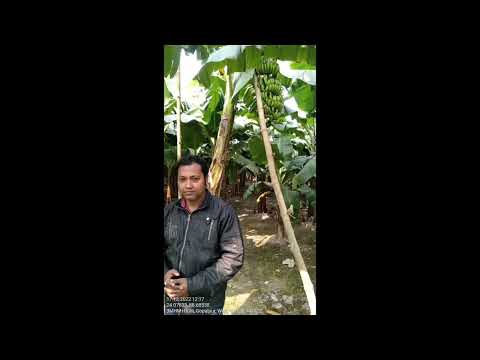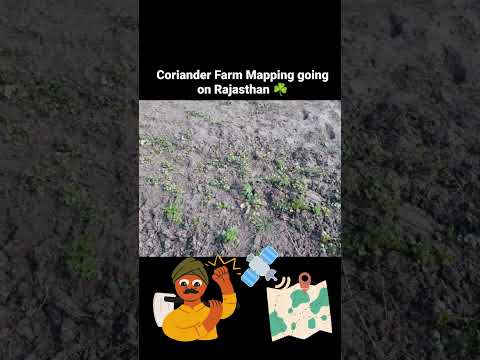Farmonaut’s Guide: Navigating Plant Health Certification for Interstate Commercial Exports

“Over 90% of interstate plant exports require either a Plant Health Certificate (PHC) or Plant Health Assurance Certificate (PHAC).”
Welcome to Farmonaut’s comprehensive guide on navigating plant health certification for interstate commercial exports. As pioneers in agricultural technology, we understand the critical importance of complying with plant health regulations and biosecurity requirements when exporting regulated plant products across state lines. In this blog post, we’ll delve into the intricacies of interstate plant quarantine, explore the application processes for Plant Health Certificates (PHC) and Plant Health Assurance Certificates (PHAC), and discuss how our agtech solutions can support your plant health management efforts.
The Importance of Plant Health Certification in Interstate Commerce
Interstate plant quarantine and biosecurity requirements play a crucial role in protecting agricultural industries from the spread of pests and diseases. As commercial growers and exporters, it’s our responsibility to ensure that our plant products meet all necessary standards for interstate trade. Let’s explore why plant health certification is so vital:
- Disease Prevention: Certification helps prevent the spread of plant diseases across state borders, protecting crops and native plant species.
- Pest Control: It ensures that regulated plant products are free from harmful pests that could potentially devastate agricultural regions.
- Market Access: Proper certification is often a prerequisite for accessing interstate markets and maintaining trade relationships.
- Legal Compliance: Adhering to certification requirements keeps businesses in good standing with state and federal regulations.
At Farmonaut, we recognize the challenges faced by growers in meeting these stringent requirements. Our satellite-based crop health monitoring system can help you maintain optimal plant health, potentially simplifying the certification process. Learn more about our services by visiting our web app.
Understanding Plant Health Certificates (PHC) and Plant Health Assurance Certificates (PHAC)
To successfully navigate the world of interstate plant exports, it’s crucial to understand the two primary types of certifications: Plant Health Certificates (PHC) and Plant Health Assurance Certificates (PHAC).
Plant Health Certificates (PHC)
Plant Health Certificates are official documents issued by state plant health authorities that certify that a consignment of plants or plant products meets the phytosanitary requirements of the destination state. Key points about PHCs include:
- Issued on a per-shipment basis
- Requires inspection by a government plant health officer
- Typically needed for one-off or infrequent shipments
- May involve laboratory testing for specific pests or diseases
Plant Health Assurance Certificates (PHAC)
Plant Health Assurance Certificates are part of a quality assurance system that allows approved businesses to self-certify their plant products. Important aspects of PHACs include:
- Suitable for businesses with regular interstate shipments
- Requires implementation of an approved quality management system
- Allows for more efficient certification process
- Involves periodic audits by regulatory authorities
Our Farmonaut platform can assist in maintaining the detailed records often required for PHAC compliance. Explore our Android app or iOS app to see how we can streamline your record-keeping process.
The Application Process for Plant Health Certificates
Obtaining a Plant Health Certificate involves several steps. While the exact process may vary by state, here’s a general overview:
- Preparation: Gather all necessary documentation about your plants or plant products, including species, quantity, and origin.
- Contact Authority: Reach out to your state’s plant health authority to initiate the certification process.
- Inspection Request: Schedule an inspection of your plants or plant products.
- Inspection: A plant health officer will inspect your consignment for signs of pests or diseases.
- Testing: If required, samples may be taken for laboratory analysis.
- Certificate Issuance: If your plants pass inspection and meet all requirements, a PHC will be issued.
- Fee Payment: Pay any associated fees for the inspection and certification.
Farmonaut’s AI-powered advisory system, Jeevn AI, can help you maintain optimal crop health, potentially increasing your chances of passing inspections. Learn more about our AI solutions through our API.
Navigating the Plant Health Assurance Certificate Program
For businesses engaged in regular interstate plant trade, the Plant Health Assurance Certificate program offers a more streamlined approach to certification. Here’s what you need to know:
- Program Enrollment: Apply to your state’s plant health authority to join the PHAC program.
- System Development: Create a quality management system that meets regulatory requirements.
- Staff Training: Ensure all relevant staff are trained in the PHAC procedures.
- Initial Audit: Pass an initial compliance audit conducted by regulatory authorities.
- Certification: Receive approval to issue PHACs for your plant products.
- Ongoing Compliance: Maintain records and undergo periodic audits to retain PHAC status.
Farmonaut’s blockchain-based traceability solutions can significantly enhance your quality management system, supporting your PHAC compliance efforts. Discover how our technology can benefit your business by checking out our API Developer Docs.
“Compliance with plant health certification can increase export success rates by up to 75% for commercial horticulture businesses.”
Understanding Interstate Quarantine Regulations
Interstate quarantine regulations are designed to prevent the spread of plant pests and diseases across state borders. These regulations can vary significantly from state to state and may change based on current pest threats. Key aspects of interstate quarantine regulations include:
- Prohibited Items: Certain plants or plant products may be completely banned from entry into specific states.
- Treatment Requirements: Some plants may require specific treatments (e.g., fumigation) before interstate movement.
- Packaging Regulations: There may be specific requirements for how plants are packaged for transport.
- Documentation: In addition to PHCs or PHACs, other documentation may be required for interstate movement.
- Notification Procedures: Some states require pre-notification of incoming plant shipments.
Stay informed about these regulations by regularly checking with the plant health authorities of both your state and the destination state. Farmonaut’s real-time monitoring capabilities can help you maintain compliance with these ever-changing regulations. Explore our solutions by clicking on our  .
.
Comparison of Plant Health Certification Requirements by State
To help you navigate the complex landscape of interstate plant health certification, we’ve compiled a comprehensive table comparing requirements across major agricultural states:
| State | Required Certificates | Application Process | Est. Processing Time | Approx. Fees | Key Quarantine Regulations | Common Regulated Products | Primary Pest/Disease Concerns |
|---|---|---|---|---|---|---|---|
| California | PHC, PHAC | Online or in-person | 3-5 business days | $50-$150 | Strict regulations on citrus | Citrus, grapes, stone fruits | Asian citrus psyllid, glassy-winged sharpshooter |
| Florida | PHC, PHAC | Online application | 2-4 business days | $40-$100 | Stringent rules for tropical plants | Citrus, palms, ornamentals | Citrus canker, laurel wilt |
| Texas | PHC | In-person or mail | 5-7 business days | $75-$200 | Focus on cotton pest prevention | Cotton, nursery stock, pecans | Boll weevil, fire ants |
| New York | PHC, PHAC | Online portal | 3-6 business days | $60-$180 | Strict on hardwood movement | Apples, maple products, nursery stock | Emerald ash borer, spotted lanternfly |
| Washington | PHC | Electronic submission | 2-3 business days | $45-$120 | Apple maggot quarantine areas | Apples, cherries, hops | Apple maggot, spotted wing drosophila |
This table provides a quick reference for understanding the varying requirements across states. However, it’s important to note that regulations can change, and it’s always best to verify current requirements with the relevant state authorities.
Farmonaut’s satellite-based monitoring can help you maintain crop health standards across different regions, potentially easing the certification process. Explore our mobile solutions: 

Best Practices for Ensuring Compliance with Plant Health Certification
To maximize your chances of successful interstate plant exports, consider implementing these best practices:
- Stay Informed: Regularly check for updates to interstate quarantine regulations and certification requirements.
- Implement Robust Record-Keeping: Maintain detailed records of plant origins, treatments, and inspections.
- Invest in Pest Management: Develop and maintain a comprehensive integrated pest management program.
- Train Your Staff: Ensure all employees are well-versed in plant health and quarantine regulations.
- Build Relationships: Establish good communication with your state’s plant health authorities.
- Plan Ahead: Allow ample time for inspections and potential treatments before shipping deadlines.
- Utilize Technology: Leverage digital tools for monitoring plant health and managing certification processes.
Farmonaut’s suite of agtech solutions can assist with many of these best practices, from pest management to record-keeping. Explore our offerings through our API to see how we can support your compliance efforts.
The Role of Agtech in Supporting Plant Health Certification
Advanced agricultural technology plays a crucial role in helping growers meet the stringent requirements of plant health certification. Here’s how Farmonaut’s solutions can support your certification efforts:
- Real-Time Monitoring: Our satellite-based crop health monitoring provides up-to-date information on plant health, helping you address issues before they become certification obstacles.
- Data-Driven Decision Making: Leverage our AI-powered insights to optimize your crop management practices, potentially reducing the likelihood of pest and disease issues.
- Traceability: Our blockchain-based solutions offer robust traceability, which can be invaluable for certification documentation and audits.
- Resource Management: Efficiently manage your resources to maintain optimal growing conditions, supporting overall plant health.
- Weather Forecasting: Stay ahead of potential weather-related challenges that could impact plant health and certification readiness.
By integrating Farmonaut’s technology into your operations, you can streamline your approach to plant health certification and potentially increase your success rates in interstate commerce. Discover how our solutions can benefit your business by exploring our web app.
Navigating Challenges in Plant Health Certification
While plant health certification is crucial for interstate commerce, it can present several challenges for growers and exporters. Here are some common issues and strategies to address them:
- Changing Regulations: Stay proactive by regularly checking for updates and participating in industry associations.
- Inspection Delays: Build extra time into your shipping schedules to accommodate potential inspection delays.
- Pest Outbreaks: Implement robust monitoring and rapid response protocols to quickly address any pest issues.
- Documentation Errors: Use digital tools to help manage and verify certification documentation.
- Cost Management: Consider the PHAC program for frequent shipments to potentially reduce long-term certification costs.
Farmonaut’s technology can assist in addressing many of these challenges, from real-time monitoring to streamlined documentation. Explore our solutions through our API Developer Docs.
Future Trends in Plant Health Certification
As technology and regulations evolve, we can expect to see several trends emerge in the realm of plant health certification:
- Digital Certifications: A move towards fully digital, blockchain-verified plant health certificates.
- AI-Assisted Inspections: Integration of artificial intelligence in the inspection and certification process.
- Remote Sensing: Increased use of satellite and drone technology for preliminary health assessments.
- Harmonized Standards: Potential development of more unified interstate certification standards.
- Biosecurity Focus: Greater emphasis on biosecurity measures in certification requirements.
At Farmonaut, we’re committed to staying at the forefront of these trends, continually updating our technology to support growers in meeting evolving certification requirements. Stay updated with our latest innovations by regularly checking our web app.
Conclusion
Navigating plant health certification for interstate commercial exports is a complex but essential aspect of the agriculture industry. By understanding the requirements, implementing best practices, and leveraging advanced agtech solutions, growers and exporters can successfully meet certification standards and expand their market reach.
Farmonaut is committed to supporting the agriculture community in this crucial area. Our suite of satellite-based monitoring, AI-powered advisory systems, and blockchain traceability solutions are designed to help you maintain optimal plant health and streamline your certification processes.
We encourage you to explore our offerings and see how Farmonaut can support your plant health certification efforts. Visit our web app, download our mobile apps (Android | iOS), or explore our API to learn more about how we can help you navigate the complexities of interstate plant exports.
Together, we can ensure the health and safety of our plant products while fostering growth in the agricultural sector.
FAQ Section
Q: What is the difference between a PHC and a PHAC?
A: A Plant Health Certificate (PHC) is issued by state authorities for individual shipments, while a Plant Health Assurance Certificate (PHAC) allows approved businesses to self-certify their plant products under a quality assurance system.
Q: How long does it typically take to obtain a Plant Health Certificate?
A: Processing times can vary by state, but generally range from 2-7 business days. It’s important to plan ahead and allow extra time for potential inspections or treatments.
Q: Are there any plants that are universally prohibited from interstate transport?
A: While regulations vary by state, some plants like certain noxious weeds are universally restricted. Always check with both the origin and destination state authorities for specific prohibitions.
Q: How can Farmonaut’s technology help with plant health certification?
A: Farmonaut’s satellite-based monitoring, AI advisory systems, and blockchain traceability solutions can help maintain optimal plant health, streamline record-keeping, and support compliance with certification requirements.
Q: How often do interstate plant quarantine regulations change?
A: Regulations can change frequently based on emerging pest threats or policy updates. It’s crucial to regularly check with state authorities and industry associations for the most current information.



